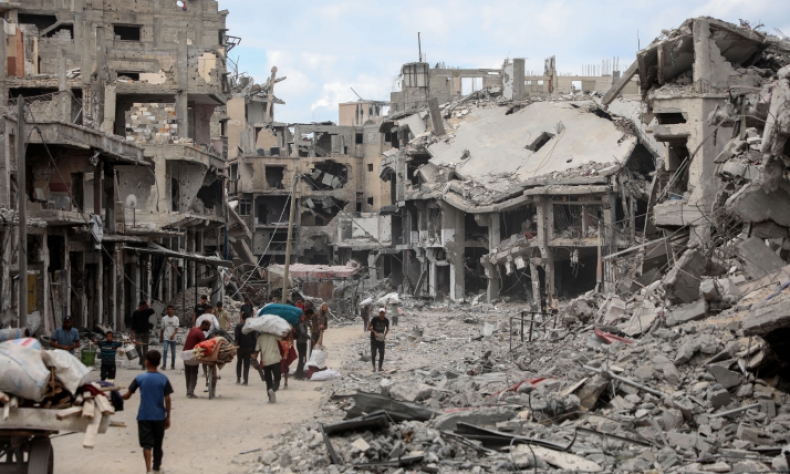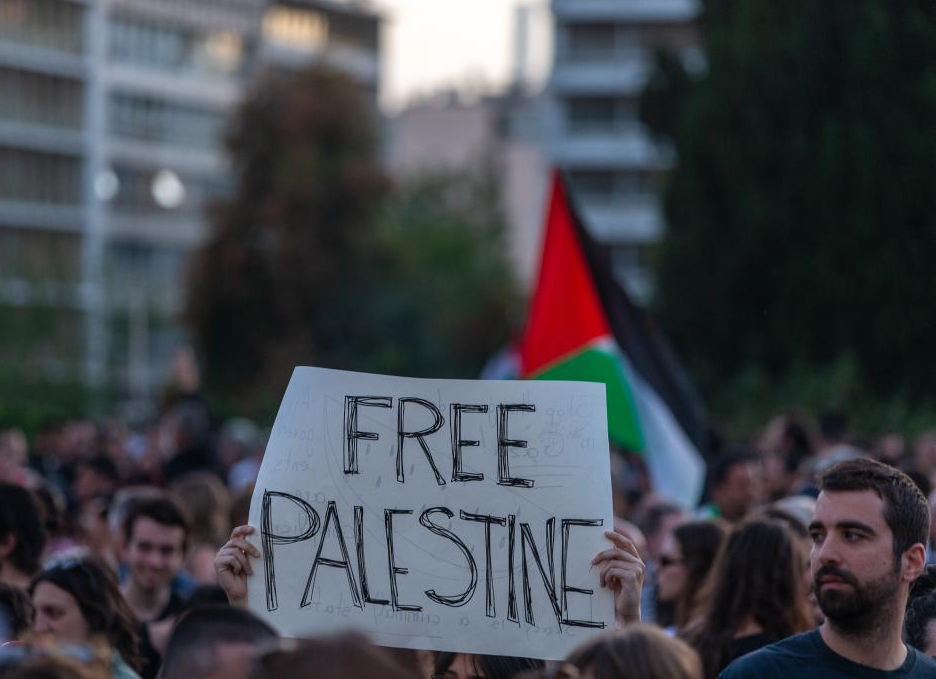Palestine and the Future of the World

There is a long way to go, and the resistance of the rulers who still cling to empire and colonialism will be stiff, but sustained activism and protest are showing the possibility of building a better and more just world—a world governed by law, morality, and a collective sense of decency, instead of the sword.
As I write these words, Israel and Hamas have just agreed to the initial points of a peace deal in which all Israeli hostages will be released, 2,000 Palestinian prisoners (really hostages as well) will be released, Israel will halt the bombing of Gaza and pull back its forces from at least most of the Strip, and Israel will allow hundreds of aid trucks into Gaza each day. This is a quite fragile peace, with Israel bombing Gaza even before the ink on the deal had dried. But still, this is the best chance for peace we have witnessed in the two years since the war began on October 7, 2023.
The toll of this war on Gaza has been staggering. According to UN Special Rapporteur Francesca Albanese, nearly 700,000 Palestinians in Gaza (out of a total of 2.3 million, or one third of the population) have been killed in this slaughter. The infrastructure of Gaza, including hospitals, ancient places of worship, schools and universities, residential buildings, water supply and purification systems, and electricity generating facilities, have been razed to the ground. It will take decades to rebuild. Indeed, it will take years just to remove the rubble in order to begin the rebuilding.
In the face of this darkness, however, many have awakened to not only condemn, but also to work tirelessly to end the genocide. For example, at the UN General Assembly meeting in New York City in September, Colombian President Gustavo Petro called for a military intervention to halt the genocide.
This call from a country of the Global South for a humanitarian intervention to halt a genocide being carried out by First World Western nations is quite a turnabout, given that it was the West that came up with the theory of humanitarian intervention to justify war and regime change in Third World countries. Many international law experts, including myself, have been very critical of the “humanitarian intervention” doctrine as a mere tool of Western imperialism, which has actually been used in a way that has undermined human rights in the nations the interventions target, for example, Libya, Iraq and Syria. In addition, most of these interventions have been carried out without UN Security Council authorization, and therefore in clear violation of international law. In the process, international law and the UN system have been gravely undermined, and purposefully so.
The initiative called for by Colombia and supported by other Global South countries of the “Hague Group” (a bloc of eight nations, Bolivia, Colombia, Cuba, Honduras, Malaysia, Namibia, Senegal and South Africa, that aims to coordinate diplomatic and legal measures against Israel’s violations of international law in Gaza—Ed.) on the other hand, is an attempt to restore and enforce international law, and in particular the Genocide Convention of 1948, in a manner consistent with the UN Charter. This initiative builds upon the other work already being done by other Global South countries including South Africa and Nicaragua to bring justice for the people of Gaza through the International Court of Justice.
All of this represents a historic moment in which the Global South, a long-time victim of the West’s perversion or simple disregard of international law, is rising to restore the rule of law in the world and to save it from the law of the jungle and of the mighty, which the West has imposed since the collapse of the USSR, and with it, the loss of the biggest support for the anti-colonial movement.

The other force that has been awakened is the people of the West itself who have risen in large numbers to protest their governments’ support for the genocide in Gaza. Some have even risked their lives to try to bring humanitarian aid to Gaza through naval flotillas, knowing full-well that they would be attacked, detained, held captive, and in some instances tortured.
And, of course, it is the resistance of the Palestinian people that is the impetus for this monumental awakening. In this way, we see what many of the world’s greatest leaders, such as Nelson Mandela and Fidel Castro, told us long ago—that all of our liberation is tied to the liberation of the Palestinian people.
The Western governments are painfully aware of the import of these seismic events. And a number of these governments —most notably, the U.S., the United Kingdom and Germany—have responded to the threatened loss of their power and dominance with repression, which has included heavy-handed police actions, arrests and even deportations.
However, along with these aggressive maneuvers, some Western countries have been forced to try to placate their own populations, as well as preserve the little credibility they have left as civilized nations, by recognizing Palestine as a state. These Western countries include Australia, Canada, France, Spain, Belgium, Luxembourg, and the United Kingdom. Quite notably, the U.S. and Germany have not joined in granting recognition.
While these Western governments’ recognition of Palestine appears clearly motivated by the desire to ease the domestic and international pressure being placed upon them, and while this recognition alone will not save Gaza, this does not mean that the recognition is insignificant. The fact that these governments have been forced to join the over 150 countries that now recognize Palestine represents a huge victory for the Palestinian people, for the Western popular peace movements, and for the cause of human rights and decency. This also represents a huge defeat for Israel and its main backer—the U.S. This recognition, in short, represents an important event in the process of the full liberation of the Palestinian people and the end of Israeli-U.S. dominance of the Middle East.
That countries like Italy and Spain even sent naval warships to accompany (at least part way) the civilian-led Sumud Flotilla to Gaza demonstrates how much the world is changing. This, even more than the recognition of Palestine, shows a breaking of the ranks of the imperial Western nations, spurred on by the people of these countries who have made it clear that they reject the colonial and genocidal systems upon which their own countries were founded.
Undoubtedly, it was all of these joint acts of solidarity with Palestine, combined with the tenacious resistance of the Palestinian people themselves, which have brought us to the precipice of peace in Gaza. A new world, in which all nations and people are equal regardless of their wealth or relative military might, is in birth. There is a long way to go, and the resistance of the rulers who still cling to empire and colonialism will be stiff, but sustained activism and protest are showing the possibility of building a better and more just world—a world governed by law, morality, and a collective sense of decency, instead of the sword. The liberation of the Palestinian people will indeed be the liberation of us all.
The author is an American human rights and labor rights attorney and political activist. He is also the author of the book The Case for Palestine, Why It Matters and Why You Should Care (2024).
 Facebook
Facebook
 Twitter
Twitter
 Linkedin
Linkedin
 Google +
Google +










